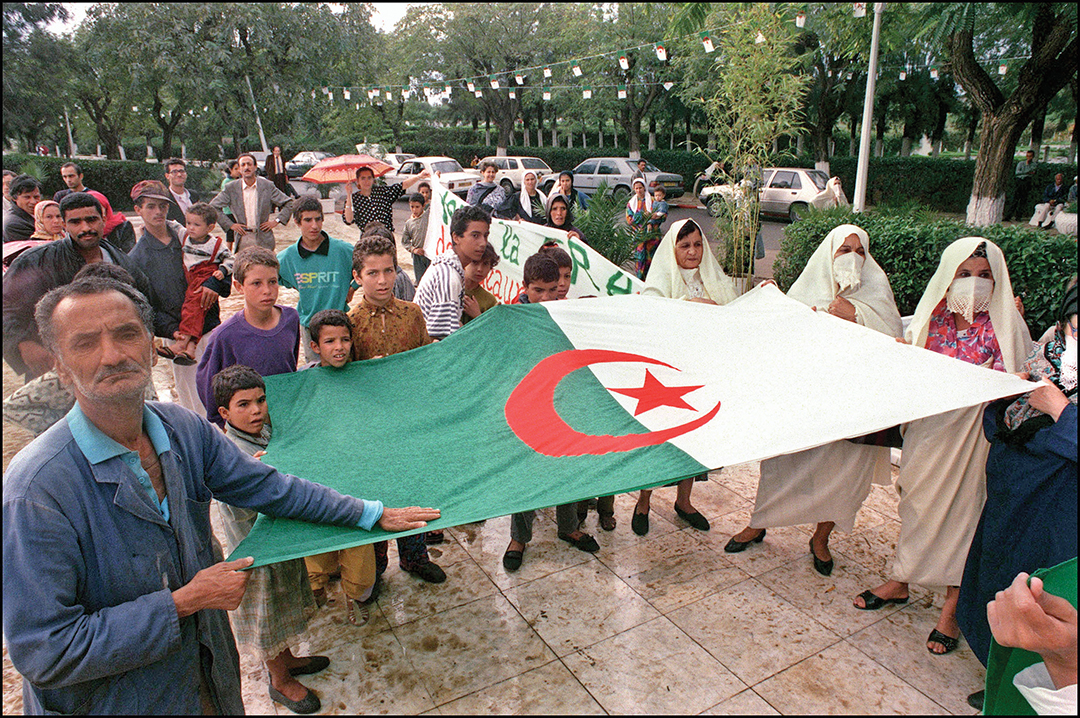ADF STAFF
Known as the “Black Decade,” the 1990s in Algeria were devastating. After a decision by the military to intervene and cancel elections in 1992, insurgents unleashed near-daily attacks against civilian and governmental targets that were met by violent crackdowns from security forces. An estimated 200,000 people died in the civil war.
When President Abdelaziz Bouteflika took power in 1999, he pledged to restore peace and make reconciliation a cornerstone of his administration. Efforts by the Algerian government to deradicalize two groups, the Islamic Salvation Army (AIS) and the Armed Islamic Group (GIA), illustrate the promise and the difficulty of the process. Leaders of the AIS agreed to disarm, and nearly all foot soldiers followed their lead. Members entered deradicalization programs, and most eventually reintegrated into civilian life. By contrast, the GIA leaders refused government peace overtures. Although GIA leadership was quickly dismantled, the group splintered and metastasized. Former GIA fighters continue to fight today and were key to the rise of international terror groups including al-Qaida in the Islamic Maghreb. As such, the Algerian deradicalization effort makes an interesting case study, according to Dr. Omar Ashour, who studied the Algerian model and wrote the book The De-Radicalization of Jihadists: Transforming Armed Islamist Movements.
“Algeria offers the two models,” Ashour said. “There’s the model where the leadership either fails or is unwilling to deradicalize, and the other model where the leadership was willing to do so. Each of them went in very different directions.”
Algeria’s deradicalization program was comprehensive. It included efforts to counter extremist ideology, efforts to reintegrate former fighters, and efforts to dismantle leadership structures. Among the strategies used by Algeria in its deradicalization program were:
Protection for those who agree to renounce violence: Leaving a terror group is dangerous. In Algeria, for instance, one of the founders of the Islamic Salvation Front survived four assassination attempts after agreeing to negotiate with the government. Others faced car bombs or attacks against family members. Consequently, Algeria offered relocation and protection to those who left and, in some cases, even issued them licensed handguns for self-protection. “The ones who came down, many of them were perceived as traitors by those who remained fighting in the mountains,” Ashour said. “It was very clear. This threat has been created, and the ones who came down are now targeted.”
Radio broadcasts: To reach hard-liners in the mountains, the Algerian Ministry of Religious Affairs broadcast messages from ex-fighters and from religious scholars. Ashour said the messages from religious scholars had a particular impact because they undermined the ideological confidence of the fighters. “It was good in shaking their beliefs, because, before that, they were very determined that they were doing the right thing,” Ashour said. “But now you have this authority who knows 100 times more about theology telling you that what you’re doing has nothing to do with religion.”
Death gratuity payments: In the Algerian experience, one of the things that tended to perpetuate violence was the cycle of retribution. When a fighter was killed, it prompted family members to take up arms to avenge the death. To intercede in this cycle, the Ministry of National Solidarity spent about $50 million between 2005 and 2007 to pay the families of those killed by government forces. “These payments were an effort to reconcile with the people most likely to embrace violence as a result of the anger generated by their unjust losses,” wrote Justin Duvall, Lee Novy and Calvin Knox in a 2012 U.S. Naval Postgraduate School report. “This program was not oriented on any specific group. Any individuals who felt their loved ones were wrongly killed/disappeared by the state could apply for compensation. Arguably, these payments diminished many families’ justification for the use of violence.”
Training imams: Algerian officials discovered that a small number of mosques led by fanatical imams were the source of many radicals. By law, the country can summon any imam suspected of giving incorrect sermons and have him answer before a council of Islamic law scholars. If found guilty, the imam is subject to retraining. Furthermore, those found to be preaching without government permission face fines and prison sentences.
None of these deradicalization methods was a “silver bullet,” and deep ideological differences and occasional terrorist activity still exist in Algeria. But, Ashour said, the government has mostly succeeded in persuading people who have religious or political grievances to voice them peacefully.
“I think the main lesson from the Algerian model is to know how to transform the conflict from an armed ugly one in the mountains into more or less a structured one in the media and the courts as opposed to a war with bullets.”


Comments are closed.